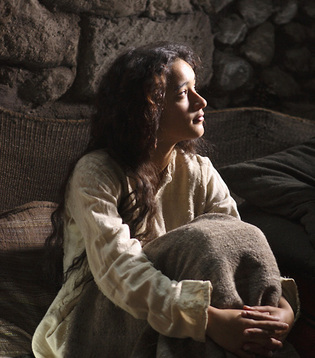
After two disrupted and difficult years due to Covid, we stand on the cusp on a new year. Many of us are fervently hoping for a very different sort of year – a year filled with certainty and peace and even joy. The latter two of these hopes are often associated with Christmas and the coming of Jesus and it feels as though the world could certainly do with more peace and joy at the moment.
This week the Gospel of Luke moves on quickly from Christmas and the baby in the manger as Luke recounts the naming and presentation of Jesus in the Temple some eight days later. Everything is done according to Jewish custom including circumcision ( … I wonder if Jesus still didn’t cry?). There we hear from two elderly prophets, Simeon and Anna, who have been waiting patiently for the redemption of Israel.
Without any prompting, both Simeon and Anna identify Jesus as the Messiah or Christ, the one who will bring salvation – the one who will bring peace, yes, but also change and uncertainty. According to Mary’s earlier song, the poor and hungry will be lifted up while the proud and powerful will be toppled from their thrones. This is seen through the lens of salvation – or healing – that this child will bring – resulting in glory for Israel and light to the nations, an early indication from Luke that this child will touch the whole world for good.
But Simeon also sounds a darker note that Jesus will bring division and disruption within Israel, again an early sign from Luke that this child will be rejected by many. He will bring pain and heartache – including to his mother Mary – as well as salvation. So for those of us wanting greater certainty and joy in our lives, be warned that following Jesus has never been the pathway to a certain or easy life. Yes, God will bring light and peace and joy through Jesus – but will also shine light into the dark and divided places in our world – including the political sphere – that may well bring discomfort and change with its corresponding level of stress. We can’t have one without the other. If we want to be true to Jesus, we will need to be willing to embrace both the light and the darker aspects he brings.




